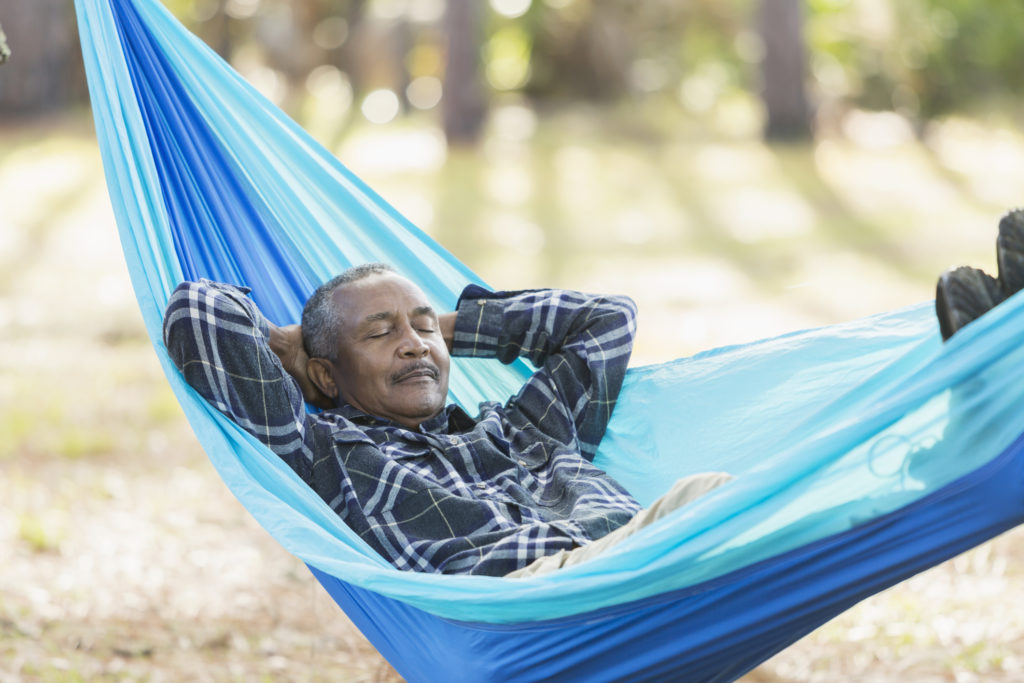Napping Is a Good Way to Help Ensure You’re Getting Enough Sleep

In our last blog post, we discussed several ways you may be able to help prevent Alzheimer’s. One of those ways is getting enough quality sleep. Sleep is essential for optimum health. Numerous studies have demonstrated the importance of sleep for forming memories, reducing depression, and maintaining both emotional and physical health. And, as we discussed in our last post, the brain is better able to detoxify itself when you’re asleep.
As we grow older, sleep difficulties often increase. In a National Institute on Aging study of people age 65 and older, over half reported having at least one chronic sleep complaint. And, good sleep becomes increasingly important as we age.
Help for the sleep-challenged
So, if a good night’s sleep is a challenge for you, what can you do? Take a nap! Several studies have shown that a nap can help improve memory and improve one’s ability to perform several tasks. Axel Mecklinger, a professor at Saarland University in Germany, headed a team of researchers that conducted a study of the effect of napping on memory. The results of his study are clear. According to Mecklinger “Even a short sleep lasting 45 to 60 minutes produces a five-fold improvement in information retrieval from memory.”
This isn’t the first study to highlight the benefits of napping. An earlier study by NASA and the Federal Aviation Administration revealed that cockpit naps (while the pilots are still in the air) of up to 40 minutes for pilots who are on flights longer than seven hours helped them stay more alert. Another study from the University of California at Riverside had similar findings. Their research showed that study subjects who took a nap before completing a variety of tasks performed better compared to those who took a caffeine pill or a placebo. Remember all those all-nighters in college? Turns out you may have gotten a better grade if you’d closed your book and taken a quick nap before heading into the exam room.
The best time for napping
So when is the best time to take a nap? According to Dr. Sara Mednick, who conducted the UC Riverside study, the ideal time for napping occurs when the REM (Rapid Eye Movement sleep, the period when you’re most likely to dream) sleep and slow-wave (deep) sleep are equally proportioned. This is where “The Ultimate Nap” occurs. For someone who wakes up at 7:00 a.m., that time is between 1:30 and 2:00 p.m. To find out when you’re ideal nap time is, visit Dr. Mednick’s Nap Wheel.
So, now you know when to take your nap, but exactly how long should it last? Many of us have had the experience of waking up feeling groggy after a nap, making us wish we hadn’t bothered. A full cycle of sleep lasts about 90 minutes. During this time you’ll go through four to five stages of sleep. So the ideal nap should last about 90 minutes. This way, you’ll have completed a full sleep cycle, and should awaken feeling refreshed. At the other end of the scale, a 10-20 minute nap can boost alertness and energy and since you haven’t reached the deep stages of sleep, you should be able to hit the ground running upon waking. But even if your nap is 30-60 minutes long and you wake up feeling hungover or grumpy, you should know you’ve stilled received some benefit. It may just be a while before those benefits become apparent.
If you can get a full eight hours’ sleep during the night, congratulations! You’re helping you mind and body get the rest it needs. If you wake up in the middle of the night and can’t get back to sleep, consider a nap. If you feel guilty doing so, just think of it as engaging in part of your overall health maintenance routine.
![LifeCare Advocates [logo]](https://www.lcadvocates.com/wp-content/uploads/sites/270/2017/11/logo.png)